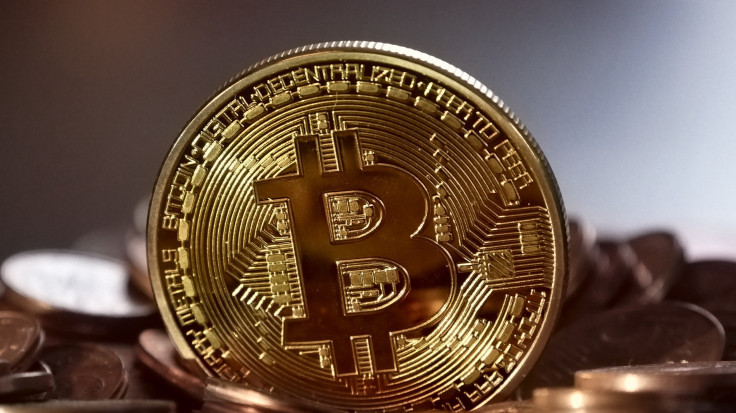This Cryptocurrency Could 10X By 2026
I'm sure by now you've heard about the outrageous returns that the cryptocurrency market has produced. In 2021, the total value of these digital assets roughly tripled, and the entire market is worth just over $2 trillion today.
Bitcoin (CRYPTO:BTC) , the world's most valuable cryptocurrency, finished 2021 up 61% on the year. But there could still be massive gains ahead. Even ARK Investment Management's CEO, Cathie Wood, thinks Bitcoin, which was priced around $43,000 as of Jan. 6, will eclipse the $500,000 mark in 2026.
Let's dive into what needs to happen for the top cryptocurrency to rise tenfold over the next five years.
Bitcoin becomes "digital gold"
The current value of all the gold in the world is a little over $9 trillion. Based on Bitcoin's market cap of approximately $800 billion, if the cryptocurrency ever truly becomes what many investors and speculators think of it as -- a "digital gold" -- then it's not difficult to believe that its value could approach the precious metal's. Both possess scarcity, as there is only a finite amount of gold in the earth's crust and there will only be 21 million bitcoins mined. Bitcoin can't be used in electronics or worn as jewelry, but it can be easily owned or transferred. For "digital gold" proponents seeking an effective store of value, Bitcoin could be the answer.
According to Cathie Wood, if institutional investors allocate 5% of their portfolios to Bitcoin, then it could reach $500,000 in value. The likelihood of this happening is anyone's guess, and it will certainly depend on its volatility decreasing significantly, but there are signs that point to increased investor interest.

There are already numerous Bitcoin exchange-traded funds available. And investment bank Goldman Sachs even has a trading desk dedicated to Bitcoin. These developments reduce the friction to get institutions on board. The appeal of owning Bitcoin, or any cryptocurrency for that matter, is that it's not correlated to other financial assets. As a result, it can add a level of diversification to portfolios.
Then there's the possibility of corporations moving a portion of any cash on their balance sheets into Bitcoin, like what Block , MicroStrategy , and Tesla have already done. If this trend continues, it will definitely provide support for Bitcoin's price appreciation in the years ahead.
Bitcoin's utility rises
Another argument for why Bitcoin can soar tenfold by 2026 is that its utility could increase. While we in the U.S. might take our advanced payments system and financial services for granted, citizens of developing countries have a different perspective.
El Salvador is the perfect example of how useful Bitcoin can be. Remittances make up a quarter of its gross domestic product, but sending money back home incurs an average fee of close to 3% per transaction. Bitcoin offers low fees (or none) to send payments across borders, meaning hundreds of millions of dollars can be released to immediately improve the livelihood of people in El Salvador. The Central American nation also recently made the cryptocurrency legal tender, a model other countries could soon follow.
Jack Dorsey, CEO of Block, views Bitcoin as the most important thing to work on during his lifetime. His company has two initiatives, TBD and Spiral, that aim to build the tools and infrastructure, such as a decentralized exchange for converting fiat currency to Bitcoin, as well as improved wallet functionality, to meaningfully improve Bitcoin's user experience.
And Coinbase Global , the leading crypto brokerage and exchange business in the U.S., operates with the overarching mission to create and propel the crypto economy. Some of the brightest entrepreneurs today are clearly working on bringing crypto to the masses. As the world's most valuable cryptocurrency, Bitcoin should naturally benefit since it will probably be the general public's first exposure to the nascent asset class.
Over the past five years, Bitcoin has skyrocketed a remarkable 4,800%. A tenfold jump in the next five years equates to a total return of 900%, or 58% on an annualized basis. This is a phenomenal rate of return that will crush the broader stock market. However, it's still a huge slowdown from Bitcoin's past performance.
There will no doubt be volatility along the way. That's just the price we must pay in order to achieve great returns. But based on the arguments I've laid out above, I think there's a possibility for Bitcoin to increase tenfold by 2026.
This article first appeared in The Motley Fool.
This article represents the opinion of the writer, who may disagree with the “official” recommendation position of a Motley Fool premium advisory service. We’re motley! Questioning an investing thesis -- even one of our own -- helps us all think critically about investing and make decisions that help us become smarter, happier, and richer.
Neil Patel owns Bitcoin, Block, Inc., and Coinbase Global, Inc. The Motley Fool owns and recommends Bitcoin, Block, Inc., Coinbase Global, Inc., and Tesla. The Motley Fool recommends MicroStrategy. The Motley Fool has a disclosure policy.





















